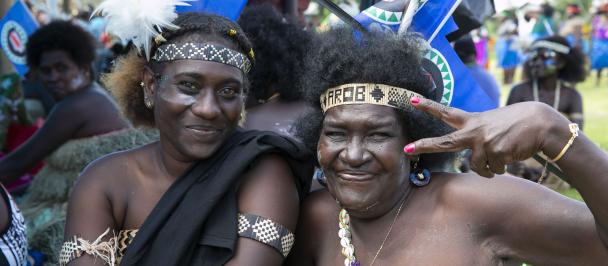Youth in Singapore demanding action on climate change, the youth are fighting for the future they will inherit - Photo: Unspalash user NSWTV
By Kanni Wignaraja and Mai Hoang - this article was originally published in Nikkei Asia on 7 August, 2021
Kanni Wignaraja is United Nations Assistant Secretary-General and Director of the United Nations Development Program's regional bureau for Asia and the Pacific. Mai Hoang is a journalist. She will represent Vietnam at a pre-COP 26 event called Youth4Climate.
Who is a youth climate activist? Do they need to be below the age of 20? How about 25? Does climate advocacy have to be their singular passion and lifelong career?
For young people, these are constant questions to grapple with as they contend with the existential risk that is climate change, which scientists say may spiral out of control if we do not limit global warming to below 1.5 degrees by 2100.
To some young climate leaders, however, the term "youth activist" does not always sit right because the word youth, when used by persons or institutions of power, can have a paternalistic, othering effect. As in "youth are the leaders of the future" because, well, right now they are not. In short, this perspective is seen as keeping youth perpetually outside existing decision-making channels.
But youth is an evocative label when deliberately chosen by a group of young people to rally their peers around key climate messages. The Youth Strike for Climate, YouthGov and Youth Climate Movement, to name a few, have proved just how powerful this strategy can be. But if these youth activists are the majority demanding radical action for the climate, then the world is in big trouble.
We must shift the discourse. Youth climate action is not merely a limited age movement or a label. Most importantly, it is a mindset -- one that everyone, from a fifteen-year-old student to a fifty-year-old industry leader -- can and must adopt. Former U.S. Sen. Robert Kennedy captured its essence when he said, "This world demands the qualities of youth: not a time of life but a state of mind." And our overheating world demands these qualities of youth, now more than ever.
Setting aside viral TikTok dances and Among Us memes, we see some timeless qualities of that young mindset. For instance, a recent publication, Special Report on Youth for Climate Action in Vietnam, surveyed 387 youth on their climate projects, aspirations, and bottlenecks encountered while fighting for a better planet. In the face of overwhelming challenges, three things were clear -- youth are future-oriented, community-oriented and willing to think beyond the status quo.
The report chronicles a young shrimp farmer in the Mekong Delta, Danh Bo. Bo is experimenting with sustainable shrimp-farming models but has failed several times and struggled to make ends meet. Yet he is not giving up, believing that his sustainability efforts will eventually pay off. His willingness to focus on long-term benefits over short-term gains inspires us and gives us hope.
It will take many more farmers like Bo to reach a tipping point where big changes happen. But it is possible. As we listen and learn from young people, we realize that they often trust and mobilize each other for collective care and action. Case in point: when concerned about the carbon emissions of her diet, college student Bao Nghi turned to classmates and neighbors to start a youth community garden. And while this interdependency is one of younger people's most distinctive and powerful features, there is no reason why those at other stages of life cannot adopt it as well, and where it works, help scale it.
We are persuaded through what we see around us, that a person can always cultivate and maintain a youth mindset, as long as they keep challenging the status quo, looking for creative ways to address issues and taking chances on new approaches. Thinking outside the box and speaking up is never easy and even less so in an institutional context. Acting on those ideas can be even harder. But it is exactly what is required of everyone for the world to get ahead of climate change and pandemics, instead of being stuck behind them.
Against overwhelming odds, youth persevere because they have the courage to remain hopeful, fight for big changes and galvanize others to do the same, even the most rigid of institutions.
In the end, youth climate activists are not labeled thus because of the year on a birth certificate. It is because we have mindsets that dare to be young!

 Locations
Locations




